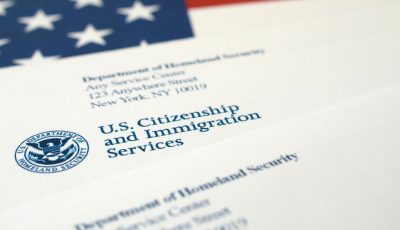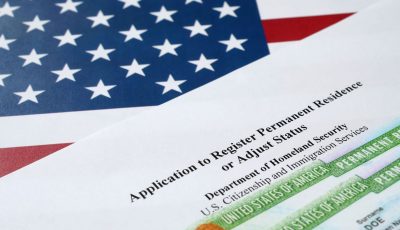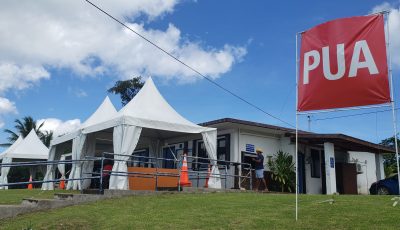Grateful for EAD extension
The Saipan Chamber of Commerce welcomed U.S. Citizenship and Immigration Services’ decision to once again extend humanitarian parole and employment authorization for all persons in the CNMI for whom parole originally ended on Dec. 27, 2018.
Chamber president Velma M. Palacios is grateful for this timely extension of humanitarian parole and EAD as both would have expired Saturday, June 29, 2019.
“This extension would allow for the continued employment of those with EADs without causing any major business interruptions. Businesses benefit retaining their existing workforce. In turn, these employees would be able to stay with their families and work and contribute to the local economy,” she said in an email response to Saipan Tribune quesries.
Because of H.R. 559—now Public Law 116-24—some 1,039 individuals would be able to continue to work in the CNMI. “We are grateful for USCIS providing an extension until Oct. 28, 2019, as regulations are developed. This provides continuity for these individuals to remain in the Commonwealth and to continue their existing employment,” she said.
Palacios also thanked the bill’s author, Delegate Gregorio Kilili C. Sablan (Ind-MP) and his staff, Gov. Ralph DLG Torres and his staff, and everyone else who worked to get H.R. 559 passed.
She also gave special mention to President Donald J. Trump and his administration for passing this key legislation that would have enormous and long-lasting benefit to the CNMI economy. “The Saipan Chamber of Commerce supported this legislation and we provided a support letter.”
USCIS announced the extension last Friday (Thursday in the U.S. mainland), three days after Trump signed U.S. Public Law 116-24, which would provide parolees permanent resident status on the islands.
The automatic extension runs through Oct. 28, 2019. Parolee employment authorization is also extended so parolees can continue to work. During that time parolees may apply for a re-parole, which may be granted on a case-by-case basis up to June 29, 2020.
Sablan also thanked USCIS for its decision to extend humanitarian parole and EAD to those covered by H.R. 559.
“Extending their parole allows these individuals to remain lawfully present in the Marianas and continue working, while USCIS sets up a process for them to apply for permanent residence under the terms of the new law,” he said.
Sablan introduced the Northern Mariana Islands Long-Term Legal Residents Relief Act last Jan. 15 in response to the decision to end the parole program for certain categories of individuals in the Marianas. According to USCIS, there were just over 1,000 people who had been granted parole at the time the program was terminated.
The agency’s decision to end the categorical parole program, begun under the Obama administration, was consistent with President Trump’s Executive Order of Jan. 25, 2017, on Border Security and Immigration Enforcement Improvements. The EO directed that parole should only be used on a case-by-case basis. When the Obama program expired in December 2018, the Trump administration declined to renew it.
Instead, the agency worked with Sablan on legislation that would provide for those who had been covered by the administrative parole to obtain a new status. That legislation is now law, but it will take time for former parolees to apply and for USCIS to adjudicate the applications on a case-by-case basis, as Trump directed.
Sablan’s Relief Act provides the opportunity for permanent residence in the Northern Marianas for the former parolees. They must have been continuously present on the islands since before the extension of federal immigration on Nov. 28, 2009, and meet other criteria. The new status does not permit residence in any other part of the United States nor does it provide a pathway to citizenship. Most of the former parolees are, however, spouses or parents of U.S. citizens and could eventually obtain citizenship through that relation.
As of Dec. 14, 2018, USCIS said there were 1,039 individuals living in the CNMI under humanitarian parole who now would qualify for the new permanent status.
These include over 800 spouses and parents of U.S. citizens, 50 in-home caregivers, five persons born in the Northern Marianas before the Covenant citizenship provisions went into effect, and persons who had been given permanent resident status under Commonwealth law in the early 1980s. All would have been forced to leave the CNMI on June 29, 2019, if the bill had not been signed into law.
USCIS originally terminated humanitarian parole and EAD last Dec. 27, but it gave a 180-day window for those affected to either look for other legal status or leave the Commonwealth. That 180-day window ended yesterday, but was rendered moot by the new extension.



























